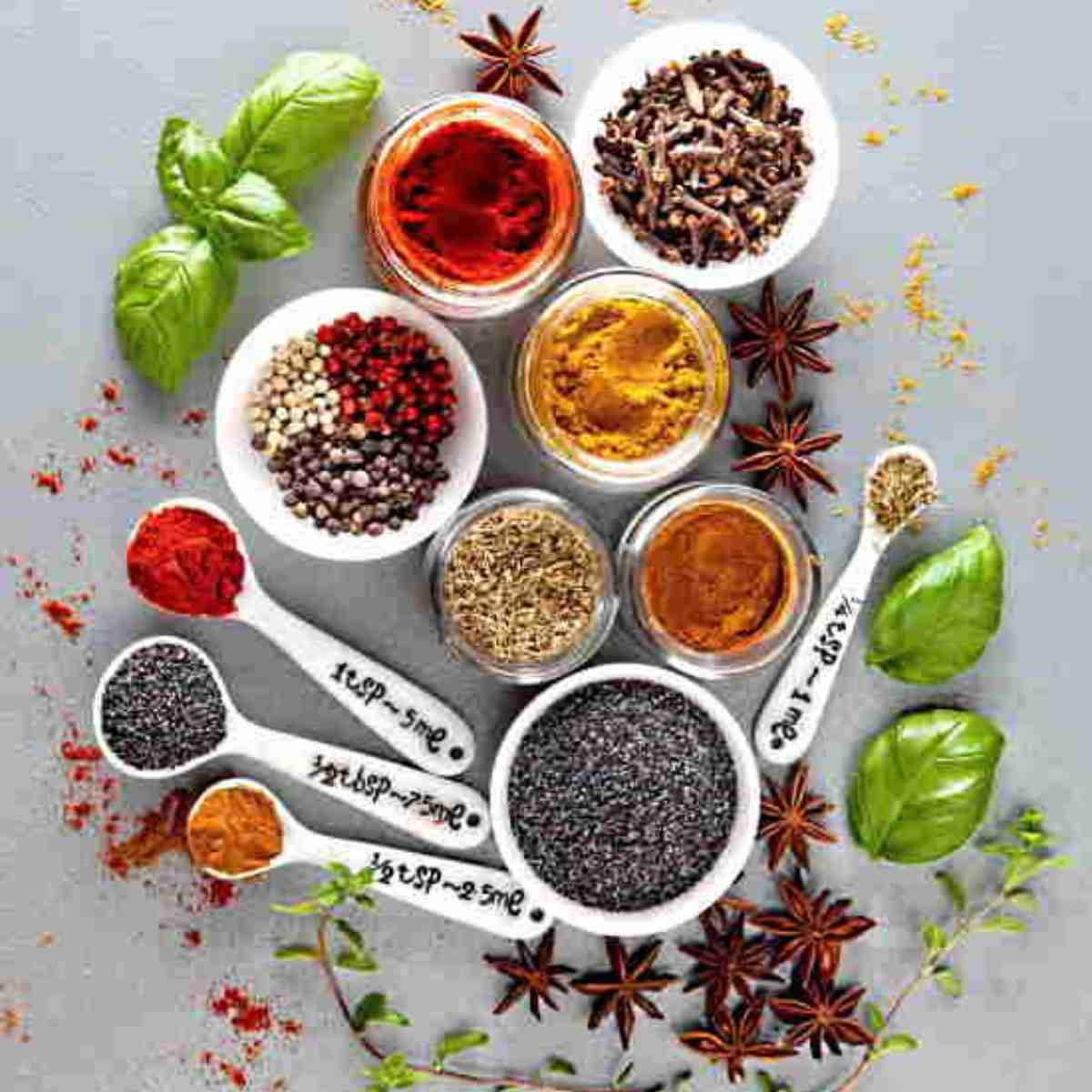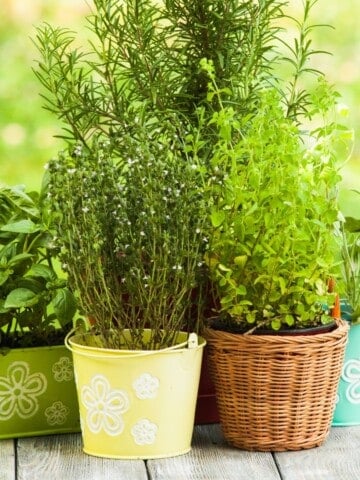Seasoning Is An Art And Will Be Mastered With Use
The way of seasoning is not to be underestimated. I often hear chefs commenting that a dish is perfectly seasoned, or not seasoned enough, but for a long time, this essential art of seasoning was a mystery to me. Gradually, I realized that seasoning is about tasting and tweaking, fine-tuning to bring out the best in the food, according to YOUR taste buds!
Jump to:
What Is Seasoning?
Seasoning is about enhancing the flavor of your food mostly by adding salt and pepper, but, while salt and pepper are often added to a list of ingredients, not all recipes quantify how much to use, not least because it's invariably a matter of personal taste and the sensitivity of our taste buds.
Although herbs, spices, and sweet, or acidic ingredients are also considered seasoning, it is salt and pepper that are on the front line.
How To Go About Seasoning A Dish?
There are two main times to think about seasoning – the beginning and the end. For slow-cooked dishes, it’s a good idea to get some seasoning in early so it can spread through the whole dish over time. For most other things seasoning at the end is the best way to go.
Before you serve, have a little taste of your dish and ask yourself: Does this taste delicious as it is? Or are the flavours a little dull? Would it taste (even) better with some salt and pepper?
If you’re unsure, take out a small sample and add salt and pepper to it. Taste and compare to the original. If it tastes better, add salt to the dish. If not then you’re ready to serve. It’s all about backing yourself and trusting your judgment.
What should I use?
Pepper
If you don’t have a pepper mill, you can use one of those supermarket disposable bottles of peppercorns.
There is no substitute for the fragrance of freshly ground pepper…and use the best black peppercorns you can find.
Salt
For salt, there are two kinds:
(a) Inexpensive fine sea salt for bulk seasoning things like pasta water or for making brine, commonly sold as table salt.
(b) Sea Salt flakes, usually Maldon or the beautiful Halen Mon sea salt from Anglesey, that have a lovely large flake structure that makes them perfect for crushing over things at the last minute.
In France, of course, there are many places renowned for producing this condiment (Fleur de sel) – from the Camargue to the Atlantic coast. So, whenever you visit, stock up on some.
What happens if you overdo it?
We’ve all been a bit heavy-handed with the salt at times, and, to be honest, the only way you can fix serious over-doing it is to dilute the dish.
Which can be tricky unless it’s a soup or stew.
Serving with unsalted accompaniments, like mashed potato made with unsalted butter, or skipping the salt in the pasta water can help.
Other Seasoning Tips
Salt Draws Out Water
When you sprinkle salt on ingredients, it tends to draw out moisture, so consider whether you want that to happen, or whether it is better to delay seasoning until further into the cooking process.
Think About The Saltiness Of The Ingredients
One of the best ways to anticipate whether you’re going to need any extra seasoning is to think about how much salt each ingredient is contributing.
If there are a heap of olives, anchovies, capers or bacon, for example, the dish will probably already be sufficiently salty.
Beware Of Taste Saturation
Remember that when your taste buds have been exposed to something a few times, they become less sensitive to those flavors. So if you've been tasting and tweaking for a while, it’s good to have a break and a glass of water, and ideally take 5 minutes out of the kitchen – or get a second opinion.
Consider Your Accompaniments & The End Use
If you’re making a filling for pies, remember that it’s going to be eaten with the pastry so a bit more salt may help things along.
Allow For The Serving Temperature
The colder things are, the duller the flavors (or, rather, the less we perceive them). Best to taste and season at the serving temperature if you can, otherwise try and allow for differences in temperature.
Consider Individual Preferences & Sensitivities
Everyone is different. People who rarely eat salty food will be more sensitive than those who eat out all the time.
Likewise, younger people tend to be more taste sensitive than the elderly.
The answer is to season as much as you think it needs, but serve some at the table for your guests to fine-tune, if desired.
Also, in my experience, people who smoke have dull taste sensitivity and are almost certain to need more salt.
Always Err Towards "Less Is More"
As we've already covered, you can put it in but you can't take it out; so best to season gradually.






If you tried this recipe please let us know.